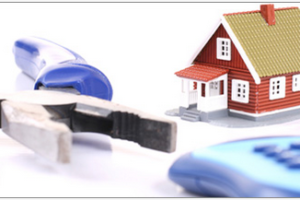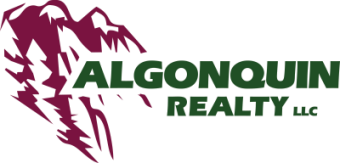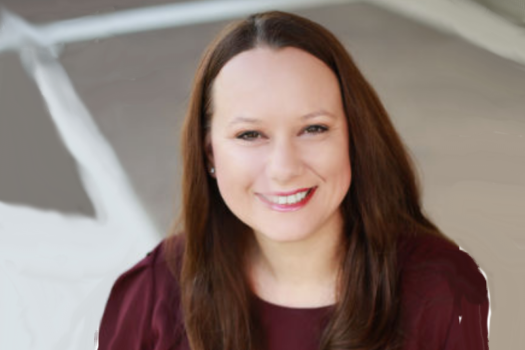Assisting Buyers
Exceptional Results in a Competitive Market
House hunting is just like any other shopping expedition. If you identify exactly what you want and do some research, you’ll zoom in on the home you want at the best price.
These great eight tips will guide you through a smart home buying process.
Know thyself.
Understand the type of home that suits your personality. Do you prefer a new or existing home? A ranch or a multi-story home? If you’re leaning toward a fixer-upper, are you truly handy, or will you need to budget for contractors?
Research before you look.
List the features you most want in a home and identify which are necessities and which are extras. Identify three to four neighborhoods you’d like to live in based on commute time, schools, recreation, crime, and price. Then hop onto realtor.com to get a feel for the homes available in your price range in your favorite neighborhoods. Use the results to prioritize your wants and needs so you can add in and weed out properties from the inventory you’d like to view.
Get your finances in order.
Generally, lenders say you can afford a home priced two to three times your gross income. Create a budget so you know how much you’re comfortable spending each month on housing. Don’t wait until you’ve found a home and made an offer to investigate financing. Gather your financial records and meet with a lender to get a pre-qualification letter spelling out how much you’re eligible to borrow. The lender won’t necessarily consider the extra fees you’ll pay when you purchase or your plans to begin a family or purchase a new car, so shop in a price range you’re comfortable with. Also, presenting an offer contingent on financing will make your bid less attractive to sellers.
Set a moving timeline.
Do you have blemishes on your credit that will take time to clear up? If you already own, have you sold your current home? If not, you’ll need to factor in the time needed to sell. If you rent, when is your lease up? Do you expect interest rates to jump anytime soon? All these factors will affect your buying, closing, and moving timelines.
Think long term.
Your future plans may dictate the type of home you’ll buy. Are you looking for a starter house with plans to move up in a few years, or do you hope to stay in the home for five to 10 years? With a starter, you may need to adjust your expectations. If you plan to nest, be sure your priority list helps you identify a home you’ll still love years from now.
Be realistic.
It’s OK to be picky about the home and neighborhood you want, but don’t be close-minded, unrealistic, or blinded by minor imperfections. If you insist on living in a cul-de-sac, you may miss out on great homes on streets that are just as quiet and secluded. On the flip side, don’t be so swayed by a “wow” feature that you forget about other issues — like noise levels — that can have a big impact on your quality of life. Use your priority list to evaluate each property, remembering there’s no such thing as the perfect home.
Limit the opinions you solicit.
It’s natural to seek reassurance when making a big financial decision. But you know that saying about too many cooks in the kitchen? If you need a second opinion, select one or two people. But remain true to your list of wants and needs so the final decision is based on criteria you’ve identified as important.
Work with an ALGONQUIN REALTOR®!
- #1
-
Know thyself.
Understand the type of home that suits your personality. Do you prefer a new or existing home? A ranch or a multi-story home? If you’re leaning toward a fixer-upper, are you truly handy, or will you need to budget for contractors? - #2
-
Research before you look.
List the features you most want in a home and identify which are necessities and which are extras. Identify three to four neighborhoods you’d like to live in based on commute time, schools, recreation, crime, and price. Then hop onto realtor.com to get a feel for the homes available in your price range in your favorite neighborhoods. Use the results to prioritize your wants and needs so you can add in and weed out properties from the inventory you’d like to view. - #3
-
Get your finances in order.
Generally, lenders say you can afford a home priced two to three times your gross income. Create a budget so you know how much you’re comfortable spending each month on housing. Don’t wait until you’ve found a home and made an offer to investigate financing. Gather your financial records and meet with a lender to get a pre-qualification letter spelling out how much you’re eligible to borrow. The lender won’t necessarily consider the extra fees you’ll pay when you purchase or your plans to begin a family or purchase a new car, so shop in a price range you’re comfortable with. Also, presenting an offer contingent on financing will make your bid less attractive to sellers. - #4
-
Set a moving timeline.
Do you have blemishes on your credit that will take time to clear up? If you already own, have you sold your current home? If not, you’ll need to factor in the time needed to sell. If you rent, when is your lease up? Do you expect interest rates to jump anytime soon? All these factors will affect your buying, closing, and moving timelines. - #5
-
Think long term.
Your future plans may dictate the type of home you’ll buy. Are you looking for a starter house with plans to move up in a few years, or do you hope to stay in the home for five to 10 years? With a starter, you may need to adjust your expectations. If you plan to nest, be sure your priority list helps you identify a home you’ll still love years from now. - #6
-
Be realistic.
It’s OK to be picky about the home and neighborhood you want, but don’t be close-minded, unrealistic, or blinded by minor imperfections. If you insist on living in a cul-de-sac, you may miss out on great homes on streets that are just as quiet and secluded. On the flip side, don’t be so swayed by a “wow” feature that you forget about other issues — like noise levels — that can have a big impact on your quality of life. Use your priority list to evaluate each property, remembering there’s no such thing as the perfect home. - #7
-
Limit the opinions you solicit.
It’s natural to seek reassurance when making a big financial decision. But you know that saying about too many cooks in the kitchen? If you need a second opinion, select one or two people. But remain true to your list of wants and needs so the final decision is based on criteria you’ve identified as important. - #8
-
Work with an ALGONQUIN REALTOR®!

Search Assistance
We help our buyers understand the many fields of information in a listing search. We guide them in making the most of searches with thousands of listings. Learn more…

Automated Search Reports
Once we have an idea of your criteria for a home selection, we can set up automated search alert emails to keep you informed of new listings and price reductions of qualified properties. Get started by contacting us…

Financing Assistance
As tough as it is these days to get a mortgage, we know the best sources in The Colony, Dallas, Carrollton, Frisco, Little Elm, Lewisville, Coppell, McKinney, Richardson, Allen, Flower Mound, Farmers Branch, Savannah, Plano and many other real estate markets. We’ll help you to contact mortgage professionals who have been very helpful to our past clients. Learn more…

Price Negotiations
Buyers shouldn’t walk into a deal unarmed. We arm you with market data to help you to understand the buyer and seller sides and formulate an offer price negotiation strategy.

Inspections & Repair Negotiations
Price isn’t the only negotiation, as there will be property inspections and you may need to enter into more negotiating around property condition and repairs. We are experts at this.

Contract to Closing
The myriad of tasks, documents and delivery deadlines involved in a real estate transaction are all coordinated by your agent and our closing assistance staff. From title insurance to surveys and mortgage documents, We are here to help.






